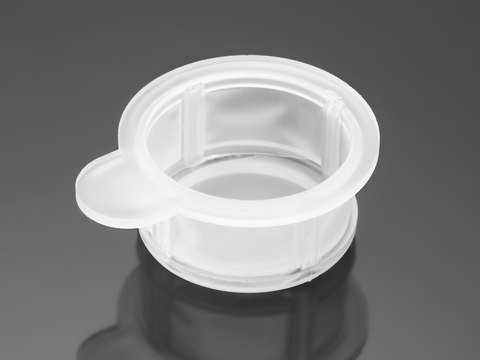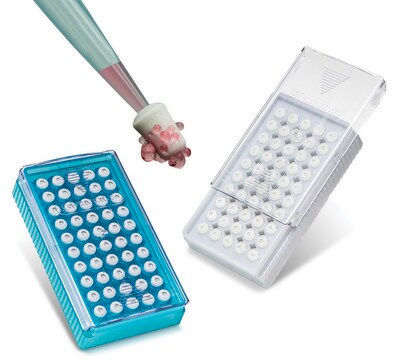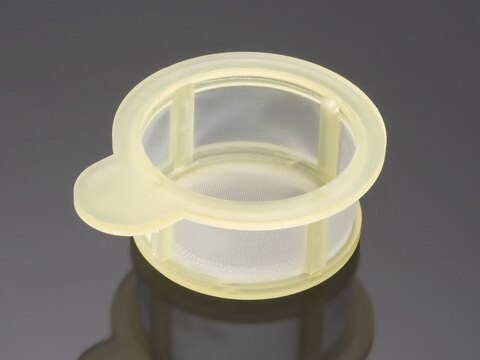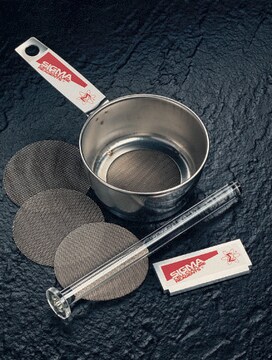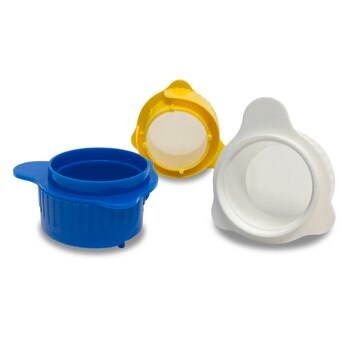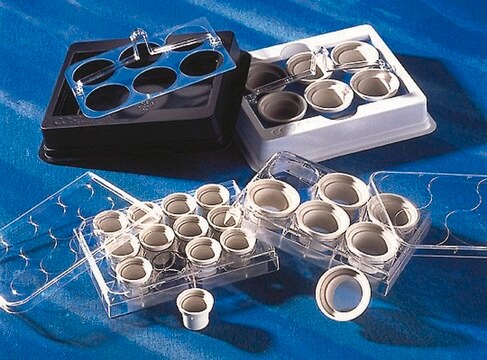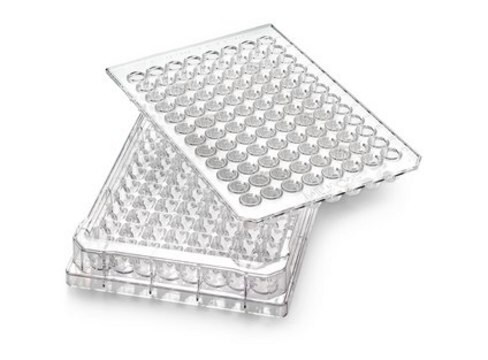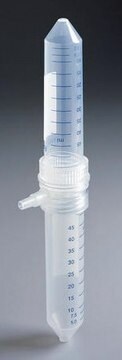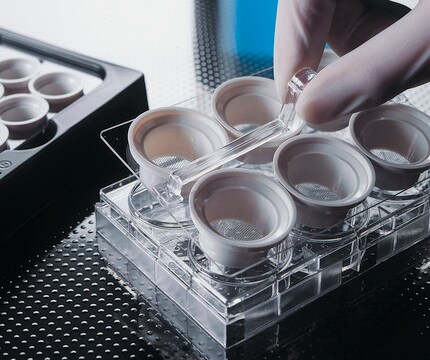CLS431751
Corning® cell strainer
pore size 70 μm, white, sterile, pkg of (individually wrapped), pack of 50 ea, Corning 431751
Sinonimo/i:
Cell Strainer
About This Item
Prodotti consigliati
Materiali
Nylon
white
Sterilità
sterile
Confezionamento
pack of 50 ea
pkg of (individually wrapped)
Produttore/marchio commerciale
Corning 431751
Dimensione pori
70 μm
Cerchi prodotti simili? Visita Guida al confronto tra prodotti
Descrizione generale
Applicazioni
- Single cell suspensions of blood cells from marrow, pancreas, thymus, tonsil, and lymph nodes
- Stem cells, tissue-derived cells, and cancer cells
- Preparation of specimens for primary cell cultures and immunogens
- Preparation of freezing stocks
- Filtering agglutinative proteins produced in inactivation serum
Caratteristiche e vantaggi
- Strong nylon mesh with 70- micron pores for optimal performance in a variety of applications
- Evenly spaced mesh pores providing consistent and reliable results
- Conveniently accessible in individual packaging
- Extended lip on strainer enables aseptic handling with forceps
- Molded color-coded polypropylene frame with tab enables easy handling and identification
- Fits all major brands of 50mL conical tubes
- Disposable, easy-to-use, inexpensive, maintains sample integrity
- Sterilized by γ−irradiation, noncytotoxic
Note legali
Scegli una delle versioni più recenti:
Certificati d'analisi (COA)
It looks like we've run into a problem, but you can still download Certificates of Analysis from our Documenti section.
Se ti serve aiuto, non esitare a contattarci Servizio Clienti
Possiedi già questo prodotto?
I documenti relativi ai prodotti acquistati recentemente sono disponibili nell’Archivio dei documenti.
I clienti hanno visto anche
Articoli
Development of a novel serum-free and xeno-free human mesenchymal stem cell (MSC) osteocyte differentiation media.
rganoid culture products to generate tissue and stem cell derived 3D brain, intestinal, gut, lung and cancer tumor organoid models.
Protocolli
Information about mesenchyme, specifically mesenchymal stem cell procotols. Step-by-step cell culture protocols for mesenchymal stem cell (MSC) isolation, expansion and differentiation.
Il team dei nostri ricercatori vanta grande esperienza in tutte le aree della ricerca quali Life Science, scienza dei materiali, sintesi chimica, cromatografia, discipline analitiche, ecc..
Contatta l'Assistenza Tecnica.
